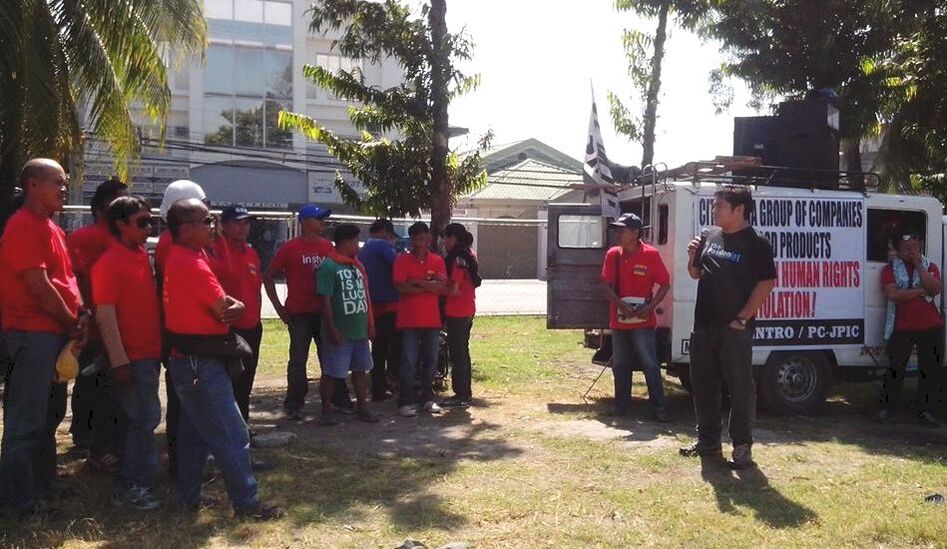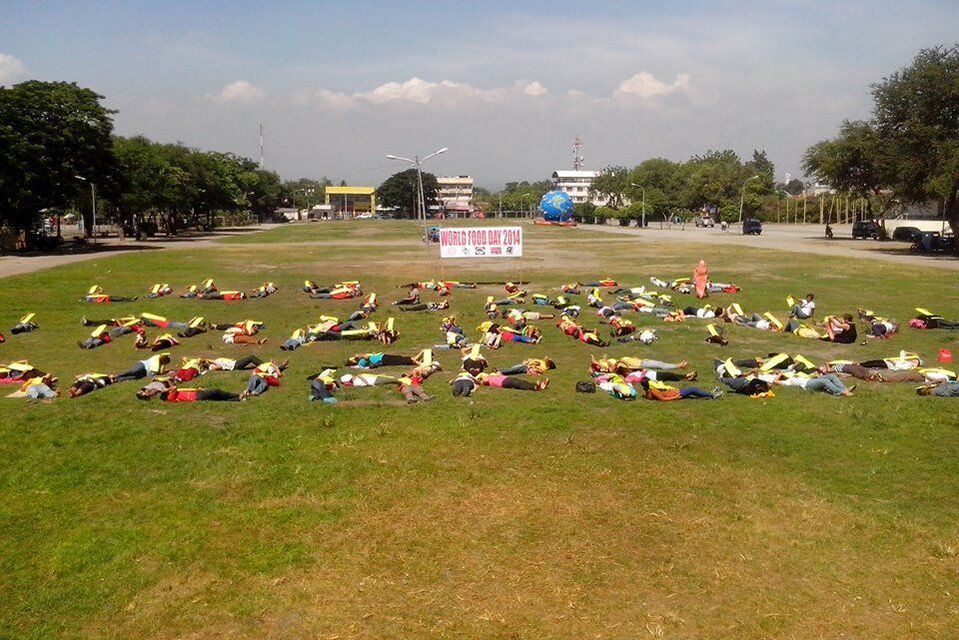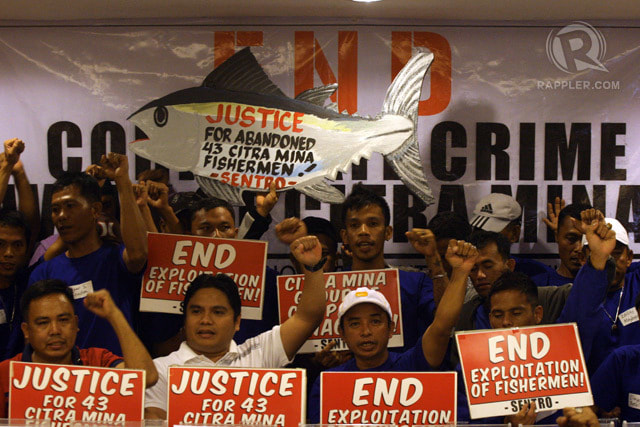 "Feed My Sheep" "Thus, as we follow the command of our Lord, we will emulate Him by making ourselves ‘Shepherds of His Flock’—by declaring our love to Him, we are to serve and nurture His people." We received the following powerful reflection and commentary on the calamitous climate change-related drought in the Phillipines from Fr. Rey Carvyn P. Ondap, CP, Executive Director, Passionist Center for Justice, Peace and Integrity of Creation in General Santos City. (see previous newsletter story on Fr. Rey here) Fr. Rey, in his reflection on the Third Sunday of Easter, says "let us give focus and our utmost attention to one of the calamities brought about by the Climate Change—the intense dry spell also known as El Niño in the Southernmost part of Mindanao, one of the three major islands of the Philippines. This drought has already devastated not only the agricultural lands of the area but also the lives of thousands of families due to hunger." See a fact sheet here. "In 2015, the Philippine Atmospheric, Geophysical and Astronomical Services (PAGASA) released statements that the dry spell is expected to reduce rainfall by 60 to 80 percent, affecting more than half of the country. It was expected to be one of the strongest in the last decades, predicted to endanger livelihoods, harvests and nutritional status of rural poor households in the agricultural sector." Read: Feed My Sheep, A Reflection from Fr. Rey Ondap, from the Third Week of Easter
0 Comments
A Passionist without a heart for JPIC is like a fish outside the water by By Fr. Rey Ondap CP2/26/2016 "If there is anybody poor and oppressed, I cannot sleep if I cannot help…. This is my call.” Taking on the difficult issues in the Philippines In January 2016, Fr. Rey Carvyn Ondap, C.P. was named Coordinator of the newly formed JPIC Commission of the Passionist Asia Pacific Configuration. This young priest takes on a daunting role, but his energy, dedication, and his track record of activism all point to Fr. Rey’s ability to further the mission of the Passionist JPIC: “to “defend the rights of the most vulnerable and exploited sector of the society.” In this new position, Fr. Rey will take on many challenges in Philippine society, such as environmental destruction, banishment of indigenous peoples, and the violation of workers’ rights, especially farmers. Grown in the tradition of JPIC values and commitment Fr. Rey was born in 1981 in Agape, Loay, Bohol, Philippines. He was raised in a middle class family as one of seven siblings. He describes himself as “an ordinary student,” studying first in public school and graduating from a private high school run by Missionary Sisters Servants of the Holy Spirit. In 1997, he joined the Passionists immediately after his graduation from high school. He studied philosophy from 1997-2001 at the University of San Carlos, Cebu City, Philippines, then went back to the seminary in 2002 to continue his formation at the Loyola School of Theology in Manila. He graduated and was ordained in 2009. Hitting the ground running After his ordination, Fr. Rey was assigned as assistant mission director of the Catholic mission to indigenous people, eventually becoming the Executive Director of JPIC in 2013 when it moved from the umbrella of Catholic Mission to the Indigenous People of the Philippines and was declared as an independent ministry. In his second year of priesthood, Fr. Rey became involved with others in a campaign against the Xstrata Tampakan gold and copper project to force international mining companies “to do the right thing” for the workers and the environment. He faced great hostility for his position from many who would benefit from the mine. "The first five years of your priesthood are supposed to be the honeymoon,” he reflect, “but they have put me in hell. But I am not opposed to mining per se. If they followed the so-called responsible mining program, then there would be no problem. We are not just fighting against the Tampakan mine; we are looking for a solution." Justice in the face of a massacre In 2013, Fr Rey showed his strong solidarity with people suffering injustice when he officiated at a commemoration mass on the anniversary of the Ampatuan Massacre of November 23, 2009. 58 persons were killed there on November 23, 2009 – 32 of them from the media, when a political convoy was attacked by armed men, believed to have been hired by another local politician. At the mass, Fr. Rey reminded the families and colleagues of the victims that four years’ delay in pursuing justice is 1,460 days of “delaying justice, controlling justice, maneuvering justice, paying justice, playing justice.” He offered specific prayers, both that politics will not hinder the pursuit of justice and that those in the Church continuously support the families of the victims. “We should not worship the god of money, the god of gold. We should worship the God of Justice,” the priest said. Read more about this story at http://www.mindanews.com/top-stories/2013/11/22/no-political-or-judicial-yolanda-please-for-ampatuan-massacre-case/. Fighting for seafood workers Another issue close to Fr. Rey has been the struggle of commercial seafood workers, specifically those from the Citra Mina seafood corporation. His home base of General Santos is a highly urbanized city of more than half a million and home to some 200,000 workers in the tuna industry. In 2014, Fr. Rey and the JPIC one of the many networks supporting Citra Mina workers struggle for better working conditions and an end to oppressive practices. He inspired the union members before the start of "die-in" action to show their cause during World Food Day 2014. In April of 2015, Fr. Rey sent a letter to Pope Francis to ask his support for the tuna workers. The letter appealed to the pontiff to write to Citra Mina and ask that it grant the demands of its workers. These demands include reinstating 104 factory workers allegedly sacked for forming a union and recognizing the union.
Advocating for Climate Action Father Rey has also become active with direct organizing to effect climate change by reducing the number of coal-fired power plants in the Philippines. He, along with Sr. Susan O. Bolanio, Oblates of Notre Dame, filed a petition against the 200 megawatt coal-fired power plant in Sarangani Province operated by the Sarangani Energy Corporation. Their petition was ultimately dismissed by the Supreme Court in September 2015. Preaching and following the Crucified Fr. Rey’s education prepared him theologically for his role with JPIC, but it is direct engagement with injustice, inequity and people on the margins that truly animates his work. He may face setbacks, but he shows no sign of stopping. In reflecting on his ministry, Fr. Rey says “The living out of the gospel has always been a challenge. As a Passionist, I simply try to live the charism: not just preaching the Crucified, but also living with the crucified. I try to be with the crucified and fight the crucifiers. For me, JPIC is the best expression of our Passionist charism.” Fr. Rey knows that he takes risks in the work he does, but he sees that too as part of his vocation as a Passionist: “I am doing is my piece of sharing with the dangerous death of Christ on the cross. Everything risky for me is fulfilling.” Download a PDF version of this article |
Categories
All
|




 RSS Feed
RSS Feed